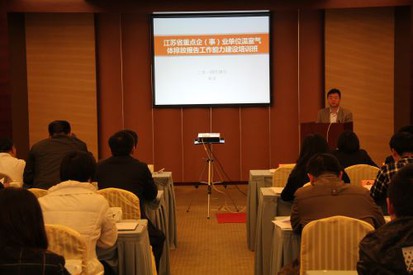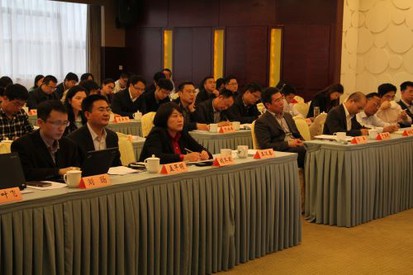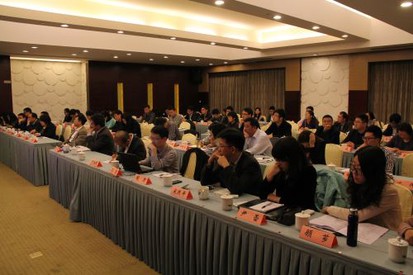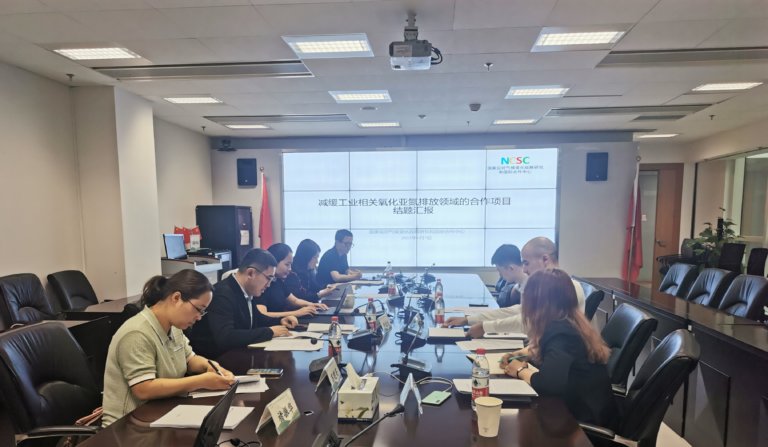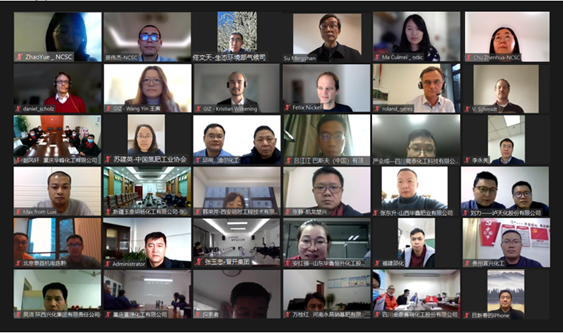16-18 April 2014 – At the beginning of 2014, NDRC published a notice to all provinces requiring key-enterprises with carbon emissions of more than 13,000 tons or an energy consumption of 5000 tce to submit annual GHG emissions reports. To ensure smooth implementation, Jiangsu DRC and the GIZ GHG-monitoring project jointly held a training of trainers (ToT) in Nanjing on April 16-18th 2014.
Well known national experts Mr. Xu Huaqing, deputy director of National Center for the Climate Change Strategy and International Cooperation (NCSC), and Mr. Yu Shengmin, deputy director of Statistic and verification department of NCSC, were invited as the main trainers for this ToT. In addition, other national and local experts from World Resource Institution and Nanjing Branch of China Quality Verification Center attended this meeting as well.
13 modules were taught during these two days of training including policy background, technical methodologies, GHG-reporting platform, data management and carbon asset management for companies. The trainers used real-time displays, case studies and Q&A sessions to help deepen their understanding of the courses and solve their immediate difficulties regarding their internal management.
The trainees came from local DRC and local professional institutions and/or consulting companies who will be expected to undertake the tasks of training enterprises in each city as a next step to participating in this meeting.
The trainees showed keen interest in the event, expressing their thoughts on how these courses were both necessary and useful for their next step of GHG-reporting training for enterprises. One of the trainees voiced, “At the state level, learning the GHG emission situation in each region and each industrial sector is essential for the national strategy of addressing and mitigating climate change; at the enterprise level, it helps our domestic companies get well prepared to participate in the planned national emissions trading scheme starting during the thirteenth five-year plan.” This training also served as a crucial supportive step towards ensuring efficient emissions reporting on a national scale. As a stepping stone towards the development of a national ETS, this training helped to lay a fundamental knowledge and basis amongst the enterprises in non-ETS pilot region.
As a next step, GIZ intends to launch pilot trainings for Jiangsu’s key industries with future trainers and selected model enterprises. These pilot trainings will be focused on the steel and chemical industry.
